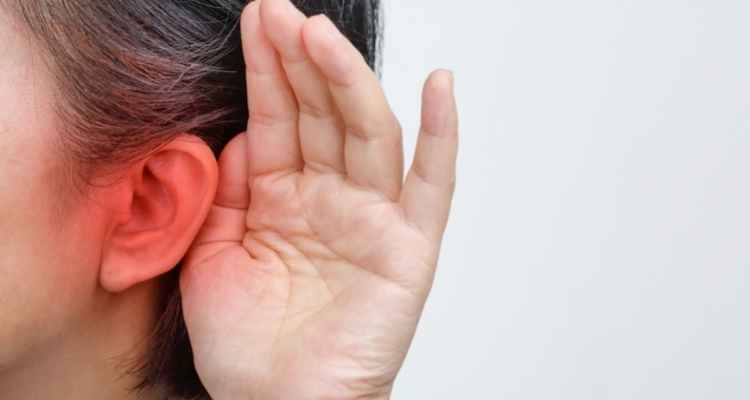Hearing loss can cause several challenges to a person’s life; cookie bite hearing loss is no different. Here we will discuss whether or not cookie bite hearing loss is a disability and how to cope with it.
Simply put, cookie-bite hearing loss is considered a disability. Although the condition is rare, patients with this disability can lead regular lives.

Is Cookie Bite Hearing Loss a Disability?
Any mind or body condition that poses challenges interacting with the surrounding environment or accomplishing certain tasks is considered a disability.
Cookie bite hearFing loss causes the patient to lose the ability to hear mid-range sound frequency. This is a rare variation of hearing loss where the patient may be able to hear low frequency and high frequency sounds clearly.
This kind of hearing loss mainly impacts the inner ear not to receive 500 Hz – 2000Hz sound waves. Most speech sound frequencies are situated mostly in this range. Therefore, patients with cookie bite hearing loss will face several challenges in communicating and accomplishing their day-to-day tasks.
Therefore, it is safe to say that cookie bite hearing loss is defined as a disability.
Challenges Faced by Cookie Bite Hearing Loss Patients
Cookie bite hearing loss often is caused due to genetic conditions. One can be born with this disability or gradually develop over the years.
The common challenges a cookie bite hearing loss patient faces are:
- Less understanding of surrounding sounds, music, and speech
- Difficulties in hearing sound in noisy environments and crowded places
- Increasing the volume of the stereo, television, or radio due to not hearing clearly
- Carrying on a conversation
- Following important sound cues in emergencies
In some cases, cookie bite hearing loss may occur due to tumor growth in your ears’ vestibular system. Without treatment, the situation can escalate and cause more damage to your hearing.
Coping up with Cookie Bite Hearing Loss
Depending on the degree of hearing loss, there are several treatment options to deal with cookie bite hearing loss. They are:
Hearing Aids
Hearing aids are the primary treatment option for any kind of hearing loss. These devices can be calibrated for almost all types and degrees of hearing loss.
First, you need to take a hearing test to get your hearing aid. If your audiogram result shows a bell shape or “U” shape, it will indicate that you have cookie bite hearing loss.
According to the result, your audiologist will suggest to you some hearing aids to choose from. Then calibrate the device to accommodate your hearing difficulties. However, several smartphone applications and online hearing tests are available to diagnose hearing loss.
We recommend seeing an audiologist to make sure there are no underlying causes for your hearing loss.
By using a hearing aid for addressing cookie bite hearing loss, you will get access to a wide range of sounds and restore the loudness of mid-frequency sounds. Additionally, you will be able to communicate better with others.
Learn Lip-reading and Sign Language
If your hearing loss has progressed too much and hearing aids cannot address the problem, you can make adaptations to live with the disability. Lip reading and sign language can help a lot in this manner.
With lip-reading, you can get a sense of what others are saying and actively participate in conversations. While it can pose some problems, it can be a viable option in many cases. You may also have some advantages if you stay near the speaker and away from the noise.
Sign language is another great way to communicate with one another. It will allow you to be able to express yourself clearly. You will also be able to find someone who is going through the same difficulties as you.
Don’t Let Cookie Bite Hearing Loss Discourage You
Living with a disability may be hard. However, you can effectively cut down challenges with treatments and assistive devices.
Hearing aids can be your best friend to help you with your disability. It will allow you to hear the sounds that were unavailable to you. You will be able to keep the volume of television and radio at a tolerable level and effectively take part in conversations.
If you learn sign language and lip-reading, it can give you more freedom and better speech understanding. Therefore, you can function as well as someone with proper hearing abilities.
Despite having hearing loss, it is possible to lead a full life. So, make sure to get the best treatment options available to you and make necessary adaptations to cope with your disability.











